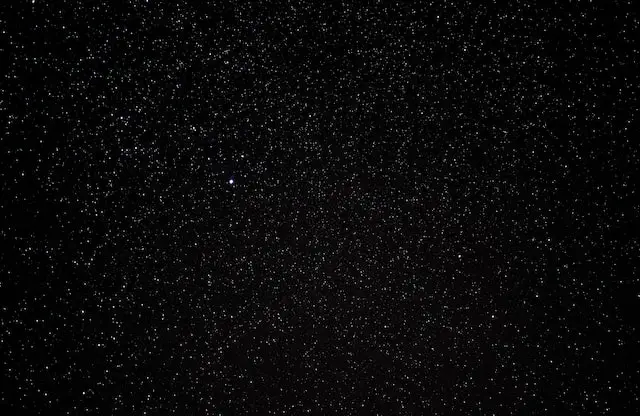To a Christian, “where did God come from?” is one of the most common objections to faith. Or, to put it another way, who made God? When did God first appear? Or, rather, how did God create Himself?
Due to God’s eternal nature, the question is inherently misrepresentative. God did not suddenly materialize out of nowhere; he has always existed.
When a Christian tends to define God’s eternal essence, the unbeliever may follow up with a different query: aren’t all things made before it is to exist?
If God didn’t come into being, then how can he exist?
Once again, there are a handful of flaws to that questioning. For starters, who made the being that allegedly created God?
This cycle of beings giving birth to other beings would continue indefinitely, which would be impossible.
As mentioned in Aristotelian thinking, an unmoved mover is necessary to cease the endless recurrence of the same maker.
This calls for God, our unmoved mover.
Who or What is God?

God made all things (Genesis 1:1). Everything comes into existence because of him (Romans 11:36).
Every living thing depends on him. Everything that has ever lived has died and relied on him to continue living.
Since he is limitless, he needs nothing to sustain his life.
Nothing had to make God, and nothing needed to do so. There can be no new beginnings if something has always existed.
Since there would be no need for a Maker if the world had always existed, skeptics may use this to claim that God does not exist.
Something eternal is not subject to change. Natural logic dictates that there must be a fixed quantity of energy in the world, and the Second Law of Thermodynamics confirms this.
Therefore, a Creator was required.
Aside from being the Maker, God is also our Father. He did not merely create the universe and then sit back and watch it do its business, as a deist might have us believe.
Instead, he integrated himself into our story.
In a sense, we, his creations, are his offspring. The Old and New Testaments contain passages about God as a father. God’s heart is gentle toward his children and those who revere him.
He has tremendous respect for all of humanity and all of his handiwork. Through Christ, we have access to God the Father, and He is unchanging.
If God Has Always Existed, What Was He Doing Before Creation?

This can make us wonder what God was doing before the world was created.
While we may place a chronological marker on the start of Creation, God, who is eternal, is not limited by it.
In this light, what did God do before he created the world?
As a result of our finite minds’ inability to fully encompass our infinite Creator, this becomes a difficult question to answer.
This inquiry reveals the widespread misconception that God, in creating the universe, also set up the concept of time.
Time requires the existence of both space and matter, neither of which existed before God created them.
If God exists beyond time and space, the statement “before creation” is incorrect.
It was the first time God declared it to be; prior to that, time did not exist.
Yet we mustn’t let ourselves be fooled into thinking God had no significance for history.
Already before the dawn of time, he conceived of a plan that would last throughout all of eternity. We must also remember that God did not act in isolation.
When we say that God is the Trinity, we imply that three deities coexist inside the same entity.
God already had all he needed in his heart. Thus, he did not need Creation to fill that vacuum.
How Is God Eternal?

Like everything else, the events in one’s lifetime have origins and conclusions, so it is difficult for us to imagine a truly eternal being.
Unexpectedly, logic shows that there must be an eternal designer behind the cosmos.
The search for God’s origins ultimately leads us to Aristotle’s “unmoved mover” arguments.
According to Aristotle, if a finite being created the cosmos, something must have generated that being and whatsoever created that being. And this will go on ad infinitum.
Because of this, we get into an infinite loop of creators, which is illogical.
Without a first cause, the universe would be like a huge chain in which each link was supported by the one above it, yet the whole thing would have collapsed.
Without a driving force, the universe is like a train without an engine. For each vehicle to go down the track, the locomotive must be drawn by a boxcar, which in turn must be pulled by a cattle car.
Nevertheless, the first car and the whole train don’t have any engines to go forward. It’s impossible to do that.
Without the prime mover, the universe simply would not exist.
How Do We Know God — The First Mover — Exists?

Everything in the universe points to a Creator:
“You alone are the Lord.
You have made the heavens,
The heaven of heavens with all their host,
The earth and all that is on it,
The seas and all that is in them.
You give life to all of them
And the heavenly host bows down before You.” (Nehemiah 9:6)
God’s fingerprints are seen throughout the universe. All of creation’s inexplicable intricacy suggests a divine designer.
God values his handiwork, as seen by the fact that he made them beautiful and purposeful.
We must investigate the Big Bang theory from a purely logical position to determine how the universe came into being.
The second rule of thermodynamics proves that the cosmos has a limited lifespan. As nothing finite can produce nothing, something infinite must have made it.
It has to be omnipotent, intimate, and everlasting because of the intricate mathematical symmetry and interconnectedness we see across the cosmos.
Biblical Support That God Does Not Have A God Above Him

Why does the Scripture include different gods if there is only one God?
Does the Bible rule out the possibility of other gods?
Does the Bible talk about whether or not there are other gods and goddesses?
There can be only one God in the universe. God is portrayed in the Bible as having perfect knowledge, unlimited power, and omnipresence. In other words, he has no limits.
For two creatures with limitless capability to cohabit in the same location is ridiculous.
If there is more than one deity, the existence of numerous deities dilutes the potency of the original deity. On the contrary, the Bible states that God is infinite.
Despite the thought of other gods, the Bible makes it very clear that there is only one genuine and living God who has always been.
As the Apostle Paul writes in his Epistle to the Galatians, even while the Bible makes allusions to pagan deities, it never asserts that they are genuine:
But, then indeed, when you did not know God, you served those which by nature are not gods (Galatians 4:8).
Knowing this, we can worship no gods or idols save Him:
“You shall have no other gods before me.” (Exodus 20:3)
Therefore we can wonder where God came from or who caused God. The truth is that nobody created or caused God into being, and he has always existed.
On the other hand, he did make us. His influence may be seen everywhere. God’s unlimited essence, mercy, strength, and wisdom are shown via creation.
Our Father desires a personal connection with his children more than any deity in any creed.
Check out some of our other posts!







